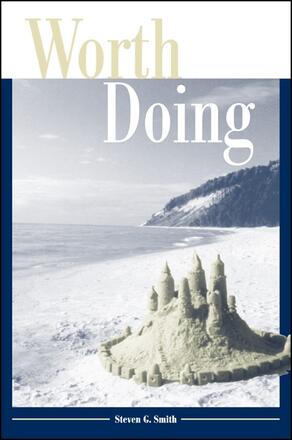
A comprehensive look at how we rely on ideals of worthy action in the pursuit of moral happiness.
Description
Distinguishing concepts of "worth" and worthiness of human lives and human activities from questions concerning value, well-being, or virtue, Steven G. Smith explores how worthwhile acts implement ideals of worthiness in four major domains—work, play, action in concert, and love. He touches on a wide range of theoretical material, including Western and Eastern philosophy, ancient and contemporary figures, interdisciplinary studies, and literary texts to provide a comprehensive look at how we rely on ideals of worthy action in the pursuit of moral happiness. A concluding chapter considers how the entire system of worth thinking works as a sort of moral economy in which cost-benefit calculations can be made, as a moral politics in which ideals can be asserted and negotiated, and as a religion in which ultimate valuations are anchored.
Steven G. Smith is Professor of Philosophy and Religious Studies at Millsaps College and is the author of several books, including, most recently, Gender Thinking.
Reviews
"In many ways Worth Doing touches on some of the best aspects of philosophical inquiry: it is conceptually rich, well written and thought out, and provocative. It is definitely a philosopher's book, a book for the curious mind. " — Review of Metaphysics
"Worth Doing is worth reading. It is rich and thickly textured, encompassing psychological (empirical desire, satisfaction, contentment), as well as philosophical approaches (justice, the quest for the right and the good). The resulting discussion of the many dimensions of 'the good life' encompasses much more than philosophy alone traditionally covers, including work, play, love, the quest for authenticity, fulfillment or distinctiveness, as well as discussing the meaning of happiness and the challenge of embodying moral values in one's life. The chapters on play and love are brilliantly conceived and the section on death is a stunning tour de force. This is truly an outstanding book. " — George R. Lucas Jr. , author of The Rehabilitation of Whitehead: An Analytic and Historical Assessment of Process Philosophy
"…an astute contemporary assessment of what is worthwhile in life. " — CHOICE
"The author provides many new insights in his discussions of 'worth domains,' and I expect that his articulation of worth thinking will become a recognized and oft-discussed alternative to the dominant paradigms in ethical theory. " — Robert Metcalf, University of Colorado at Denver